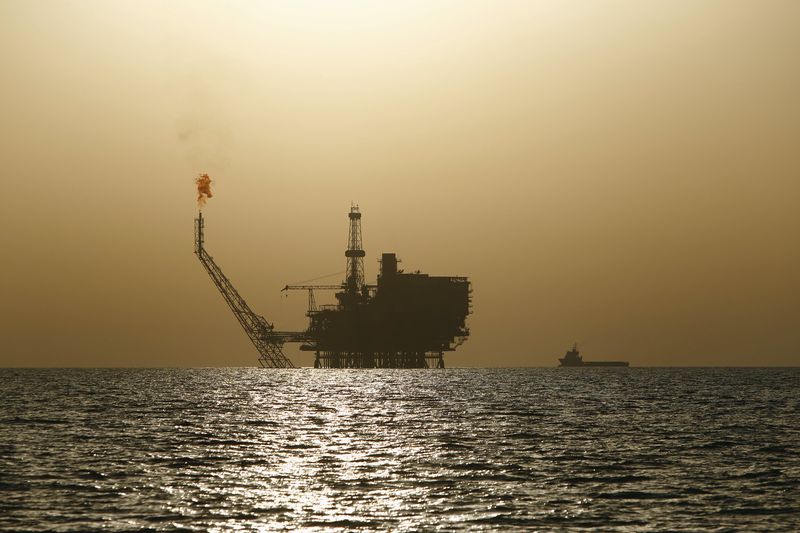Investing.com– Oil prices settled higher Monday as a pledge from Iraq to cut crude exports just as defacto OPEC leader Saudi Arabia saw oil exports slip for second-straight month, easing concerns about a global supply surplus.
At 14:30 (18:30 GMT), rose 2.1% to settle at $82.72 a barrel, and expiring in May rose 1.8% to $86.89 a barrel.
Iraq, Saudi export cuts lift optimism
Iraq is set to cut its crude exports to 3.3 million barrels a day in the months ahead to make up for producing more oil than agreed under the OPEC+ voluntary agreement reached in January.
The pledge, which would see Iraq cutting crude exports by 130,000 bpd from last month, followed review last month.
Saudi Arabia, meanwhile, reported that its crude exports fell to 6.297 million barrels per day from 6.308 million barrels per day in December, marking the second-straight month of declines and easing worries about a global supply surplus.
Beyond supply, investors will taking cues about global growth from swatch of central bank meetings including the Fed later this week.
Fed, central bank bank meetings sought for more economic cues
The Fed is set to conclude a and is widely expected to keep rates steady. But markets were wary of any potentially hawkish signals from the central bank, especially following hotter-than-expected inflation data in recent months.
Before the Fed, the is set to decide on interest rates on Tuesday, and could potentially mark an end to nearly a decade of ultra-loose policy.
Tighter global monetary conditions point to more pressure on the economy and could potentially stymie oil demand- which has been a key point of concern for oil markets over the past two years.
Beyond the Fed and the BOJ, the and the are also due to meet this week, and are expected to signal few changes in interest rates.
Oil markets await more China data
A string of key economic indicators, as well as an interest rate decision in top oil importer China are also on tap this week.
China is set to release and figures for the first two months of 2024 later on Monday, while the People’s Bank of China will decide on its key on Wednesday.
Any signs of improving economic conditions in the country are likely to provide positive cues to oil markets. Retail spending in particular is expected to have been buoyed by the Lunar New Year holiday.
But the world’s largest oil importer is still struggling with a broader slowdown in economic growth- a trend that could potentially hurt its appetite for crude.
(Ambar Warrick contributed to this story.)
Read the full article here




